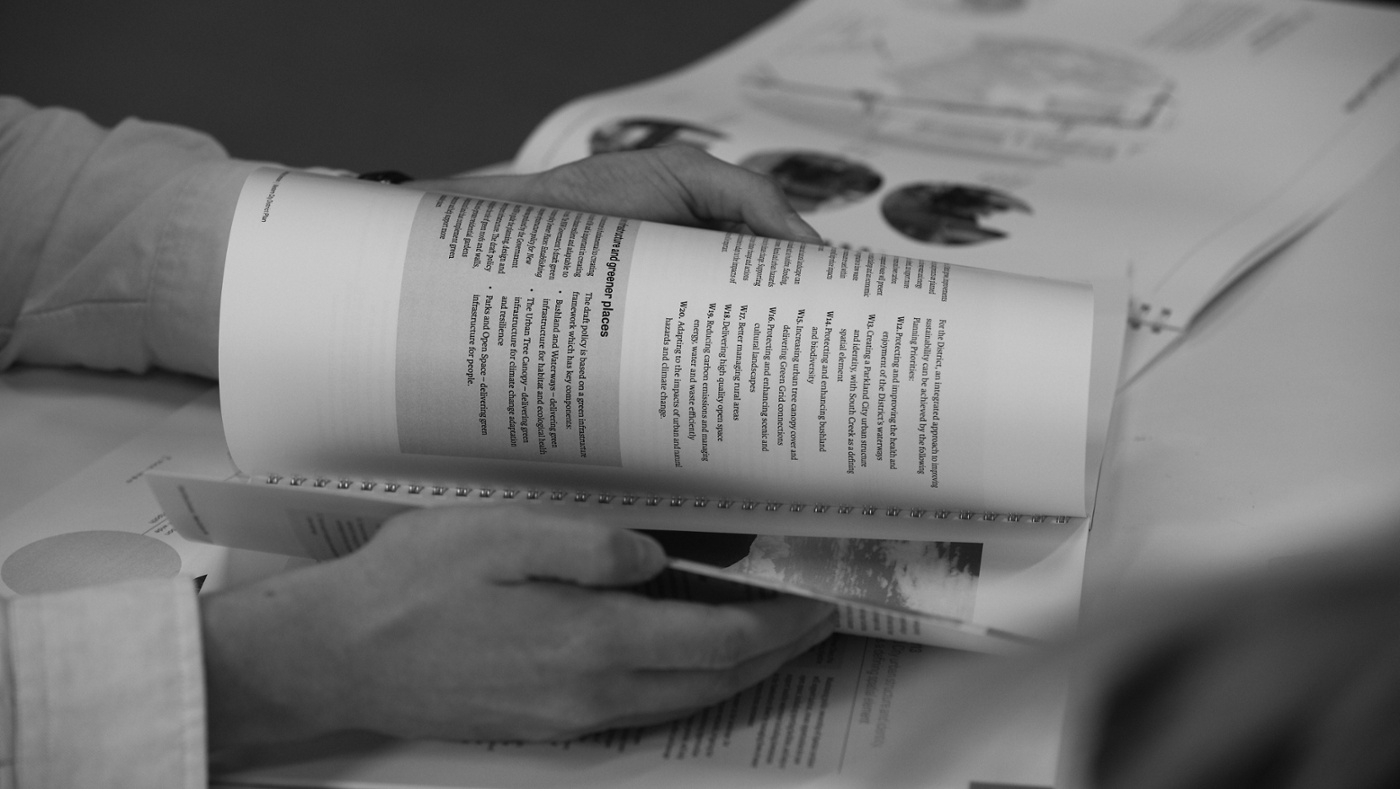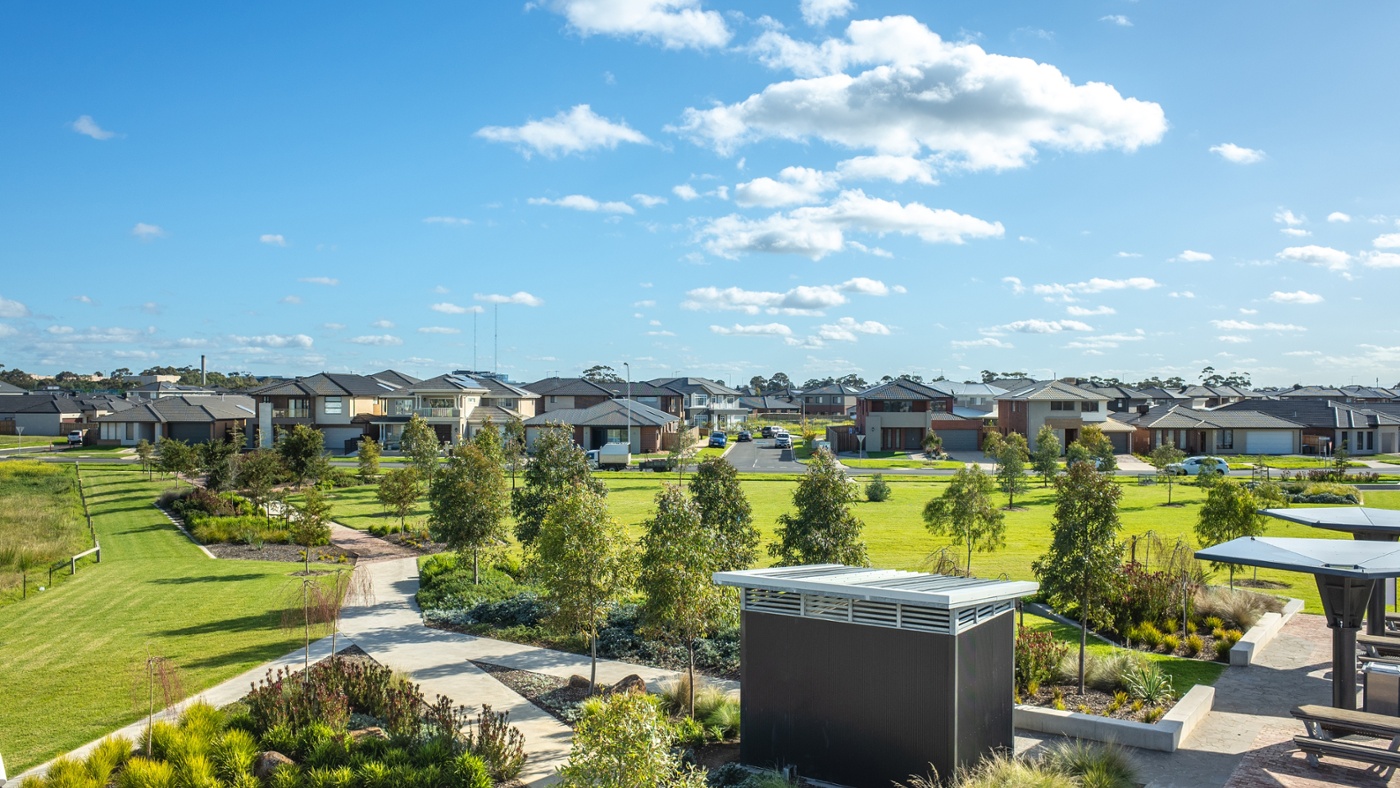Australia is on the cusp of a transformative milestone for how we think about value creation with the release today of the National Wellbeing Framework, the Measuring What Matters Statement, by the Federal Government. This eagerly anticipated initiative will support Australia to ‘measure what matters’ beyond just economic value creation. This puts us on track to become a Wellbeing Economy Government, joining the likes of Scotland, New Zealand, Iceland, Wales, Finland, and Canada.
The wellbeing framework places individuals and communities at the core of its objectives, focusing on their economic, physical, mental, and social wellbeing, framed around five themes – healthy, secure, sustainable, cohesive, and prosperous. Wellbeing will be measured with 50 diverse indicators sitting under these five themes, as shown in the figure below from the Measuring What Matters Statement.
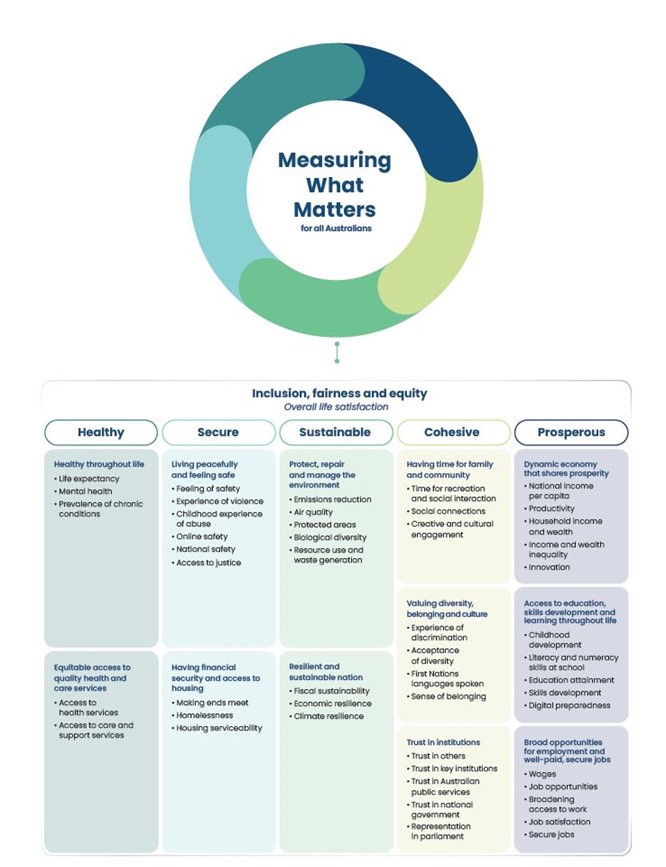
Source: Measuring What Matters Statement, Australian Government, p.16, July 2023
Contrary to how we have traditionally measured value creation in Australia – such as with Gross Domestic Product (GDP) - the wellbeing framework recognises that economic prosperity alone does not guarantee the wellbeing of Australians. By integrating social and environmental factors into policy decisions, the framework encourages sustainable economic growth that benefits all Australians. It will support the prioritisation of investments in education, housing, health, the environment, skills development, and innovation.
The introduction of the wellbeing framework also sets the stage for evidence-based and long-term policy planning. By establishing clear goals and targets, governments across the country can assess the effectiveness of their policies and allocate resources accordingly. This framework can encourage a proactive and forward-thinking approach to governance, ensuring that decisions made today contribute to the overall wellbeing and prosperity of future generations.
Not only will this framework assist government organisations to deliver better policy, the private and ‘for purpose’ sectors can also benefit from a wellbeing lens to how they develop and deliver projects. Designing projects with a proactive consideration to contributing wellbeing will not only deliver better places for people and more sustainable communities where people actually want live, work and visit, but will also assist organisations to better capture their social value creation. As organisations across the property and built environment sector grapple with how to measure the ‘S’ in ESG, taking up the wellbeing framework represents a genuine opportunity to truly ‘measure what matters’ in Australians’ lives and create better places for people.
Ethos Urban’s Social Strategy team imbed social sustainability and wellbeing throughout the strategy, implementation and evaluation of projects in the property and built environment sector, to deliver shared value for clients and communities. If you would like to discuss how your organisation can measure wellbeing or social value creation, please get in touch with Madeleine Beart, Associate Director, Social Strategy and Engagement, at mbeart@ethosurban.com.
21st July 2023
Related Insights
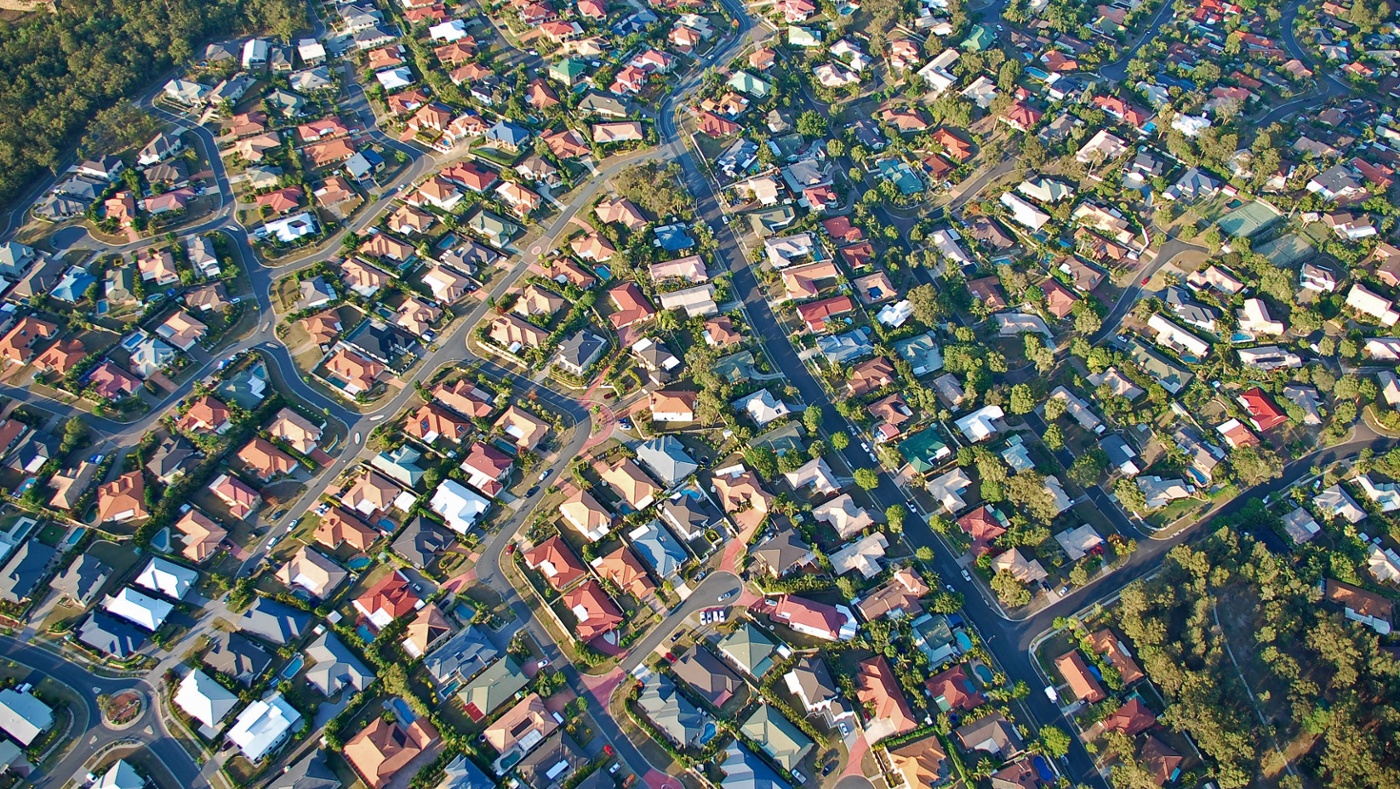
NSW Low and Mid-Rise Housing Reforms
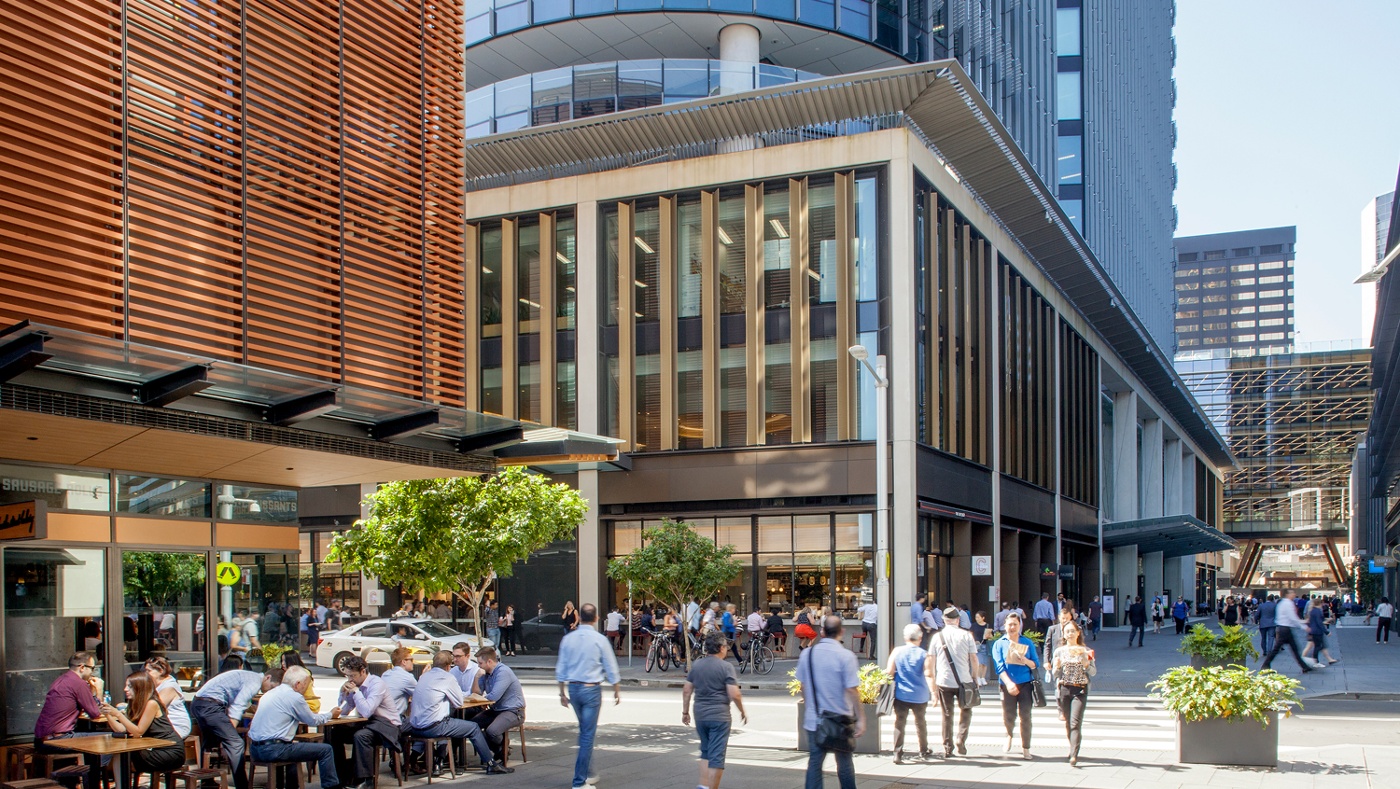
Ethos Urban to join Colliers
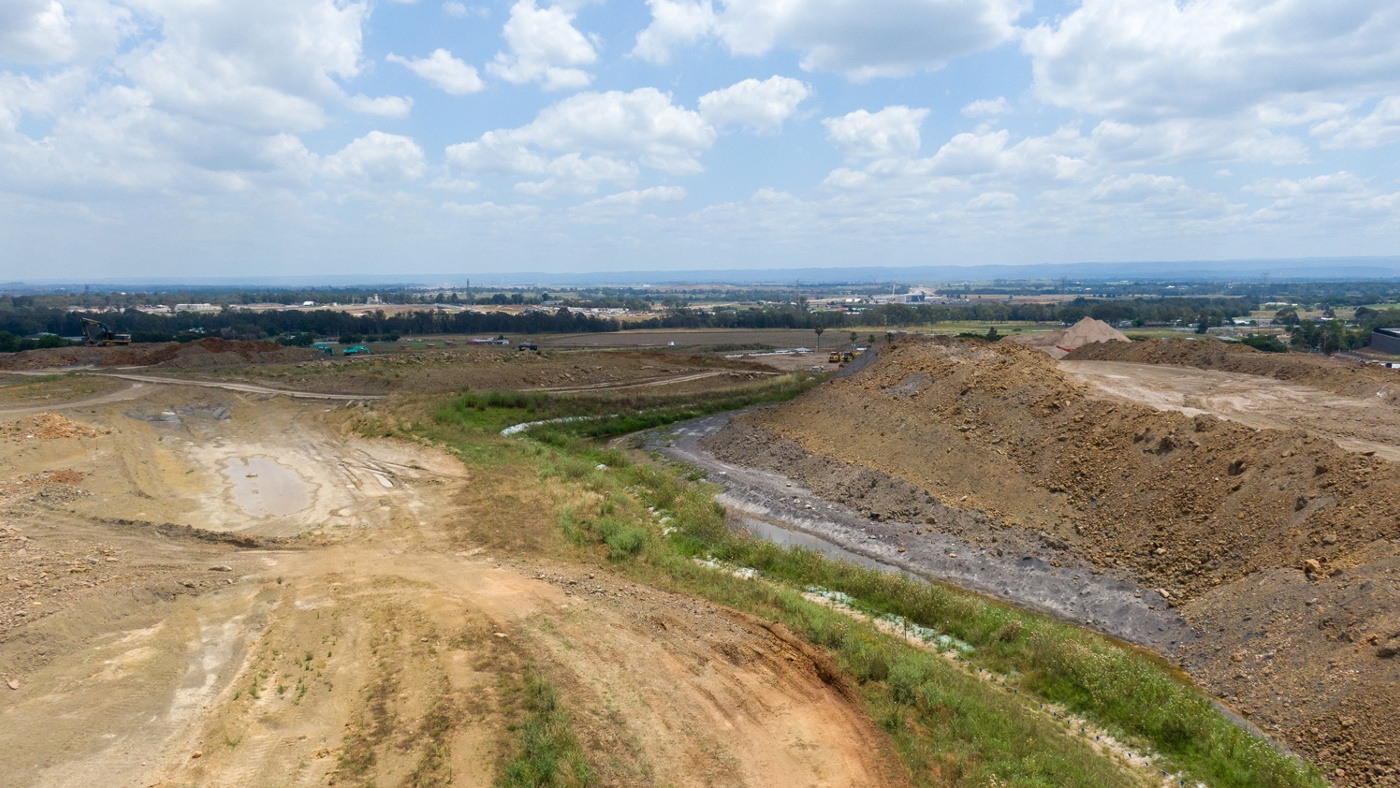
NSW Government Releases Industrial Lands Action Plan

Celebrating growth and excellence: 2025 promotions
